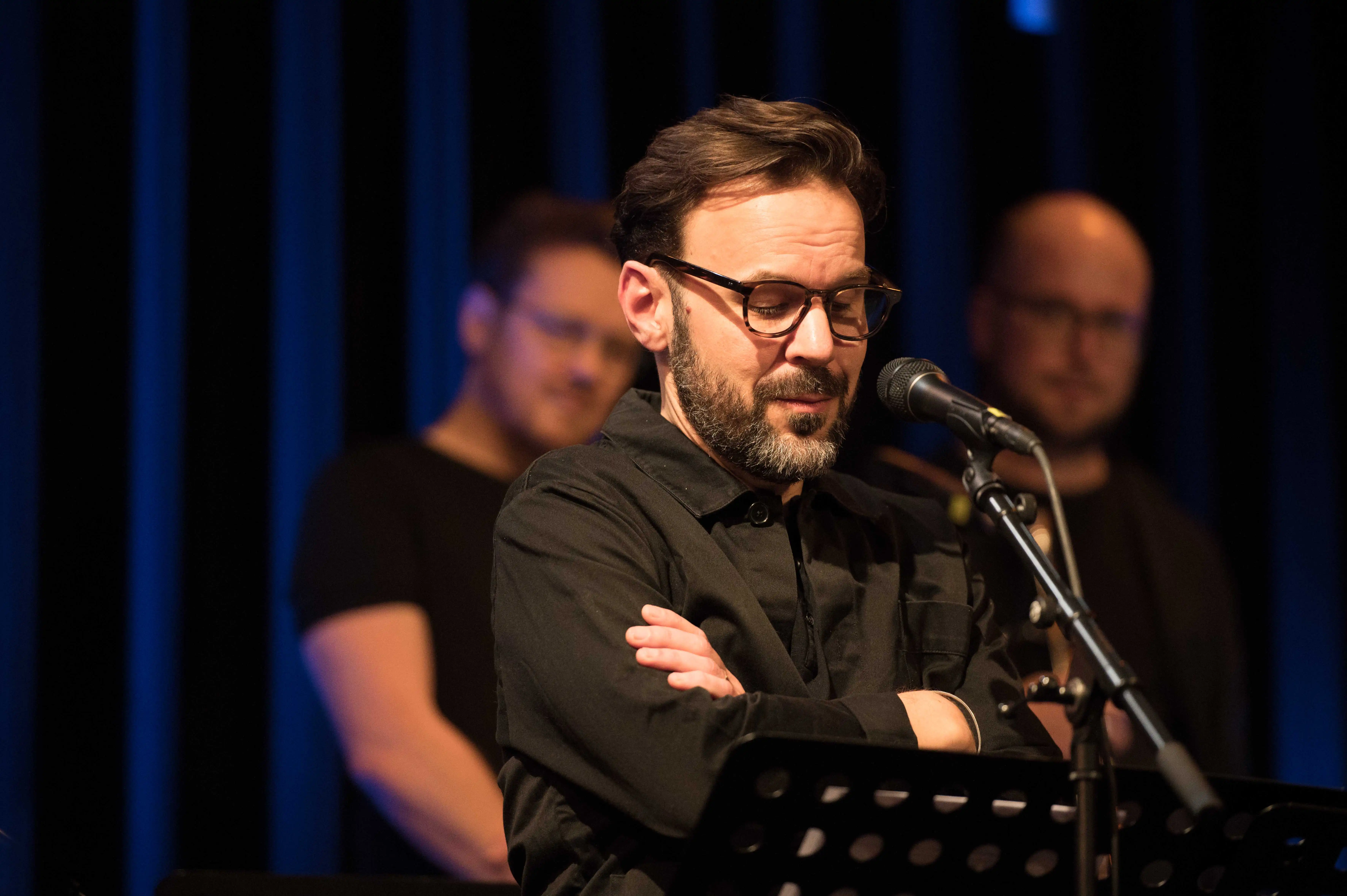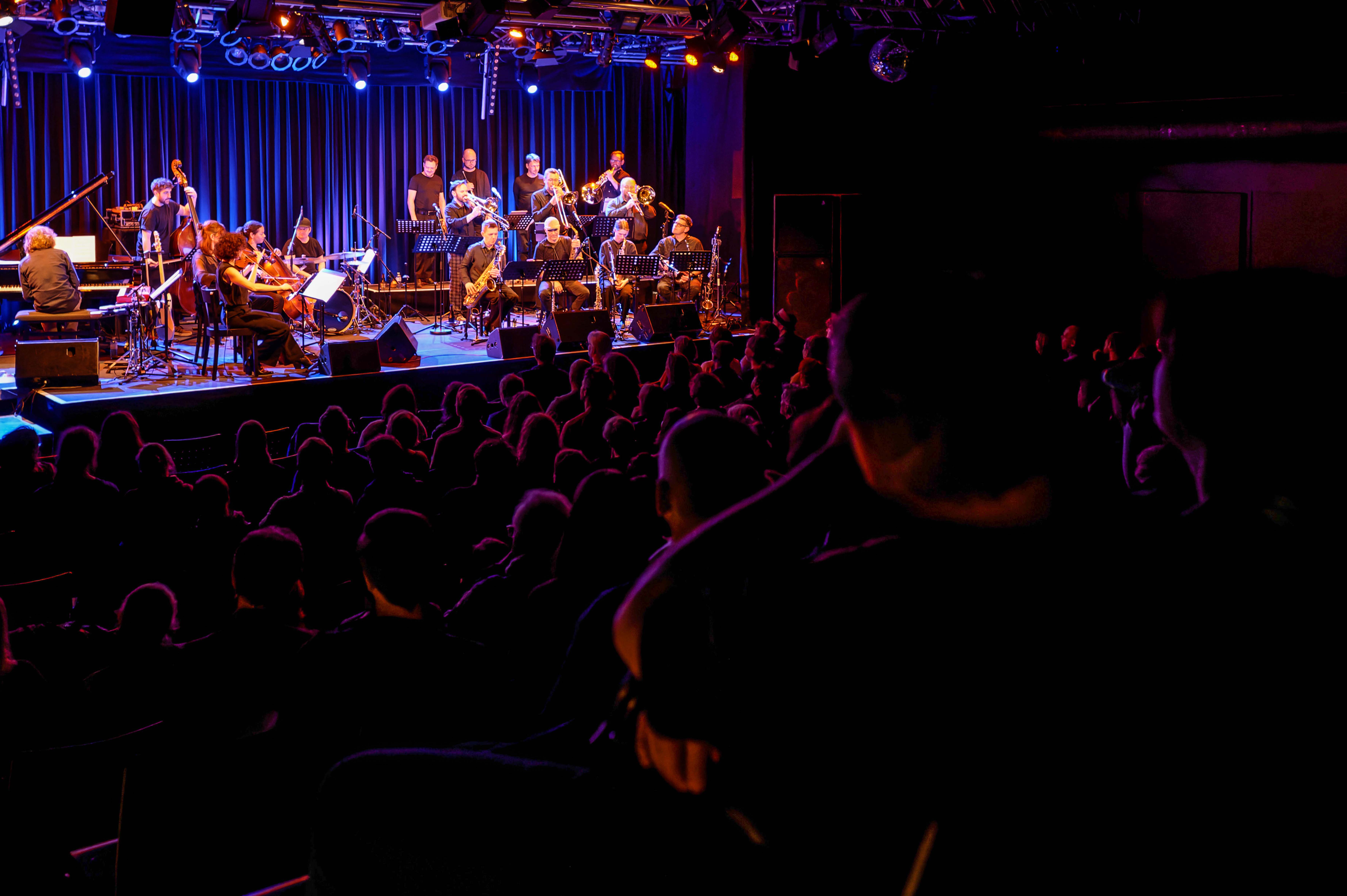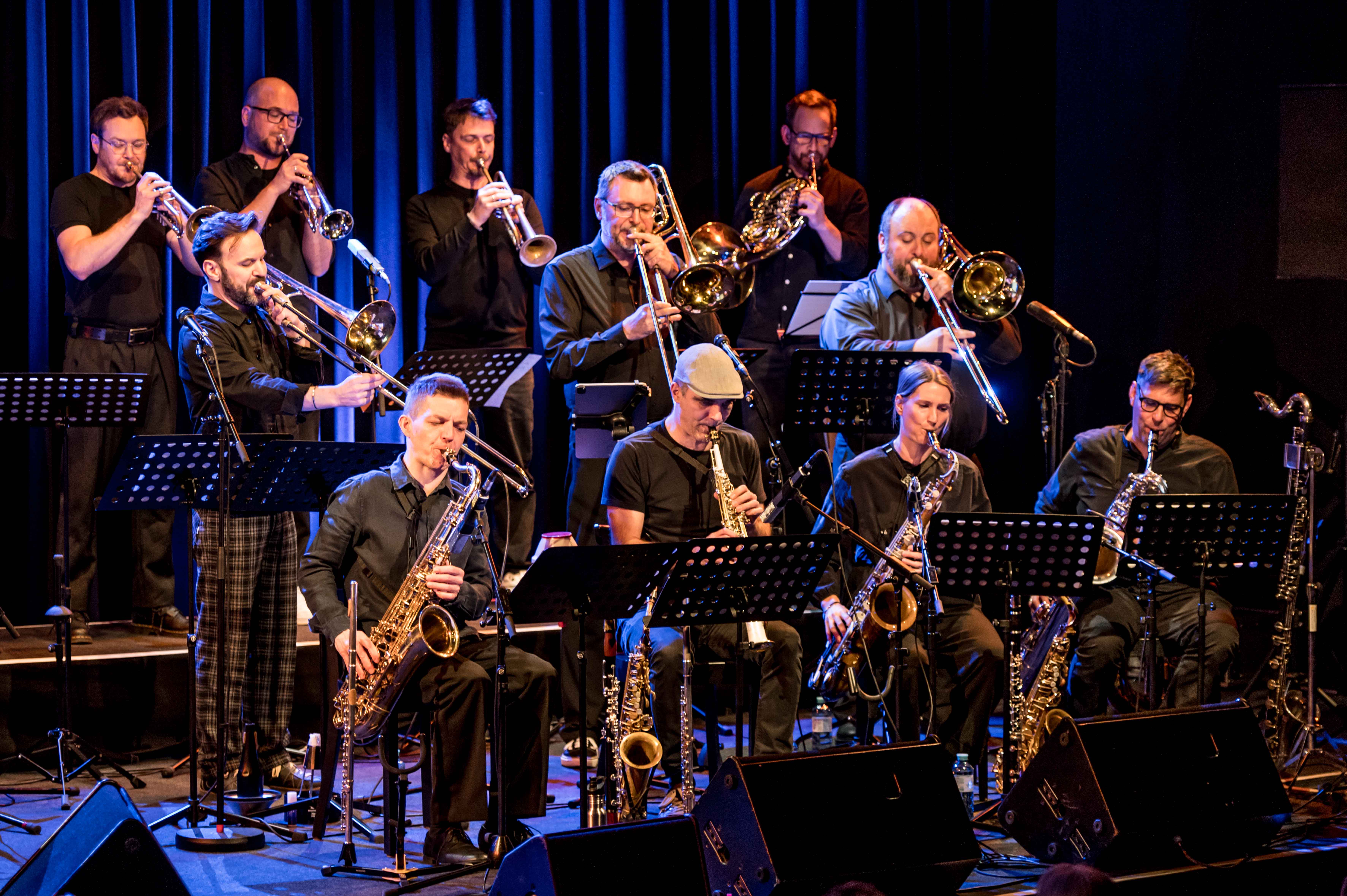Suite for jazz orchestra and speaker

Egypt Road is a real place, a country road eight or ten miles long, bordered by woods and fields and leading from the middle of a tiny hamlet to nowhere in particular. The road used to be in good repair. You could ride your bicycle down a long hill to the railroad bed, turn off the road, and ride into the forest for miles at a stretch. Farmhouses, older but still in good repair, were scattered along the road. Everyone knew everyone else, and most were friendly enough.
Now, the asphalt is cracked and uneven. Where it is patched, it is done unevenly, and as often as not you have to swerve to avoid the potholes. The forest has grown in on the road, and the houses are more dilapidated now. A couple have fallen down. The older folks that used to live here have died; some of the younger ones have moved away, and those remaining float somewhere in between. But places like this one have souls older than we know, and they may yet flourish again – maybe with us, maybe without.
This is the music of optimism, music that says: we see but a fraction of the whole - and that poorly - but we are surely part of something much greater than ourselves, and we do not have to bear the burden of what we cannot control. This is Earth music, roots music, the soul music of the woods and fields and of the people who once passed this way. This is music from one who has wandered far...but still carries that place within himself.
Picture, if you will, a June morning: school has ended, but summer proper has not yet begun. You awake with everything before you: the day, the summer, your life. You can see a triangle of window from where you lie: the sky is deep blue, a blue that would be almost hard if it were not such a friendly shade, and if the sun were not casting a bright stripe on the wall – what's the opposite of a shadow? That is what the sun is doing. What the day is doing. The smell of cut grass drifts to you through the window. This is what it felt like when the world was young.


(Cover photo © Ulrike Haidacher, concert photos © Stefan Hauer)